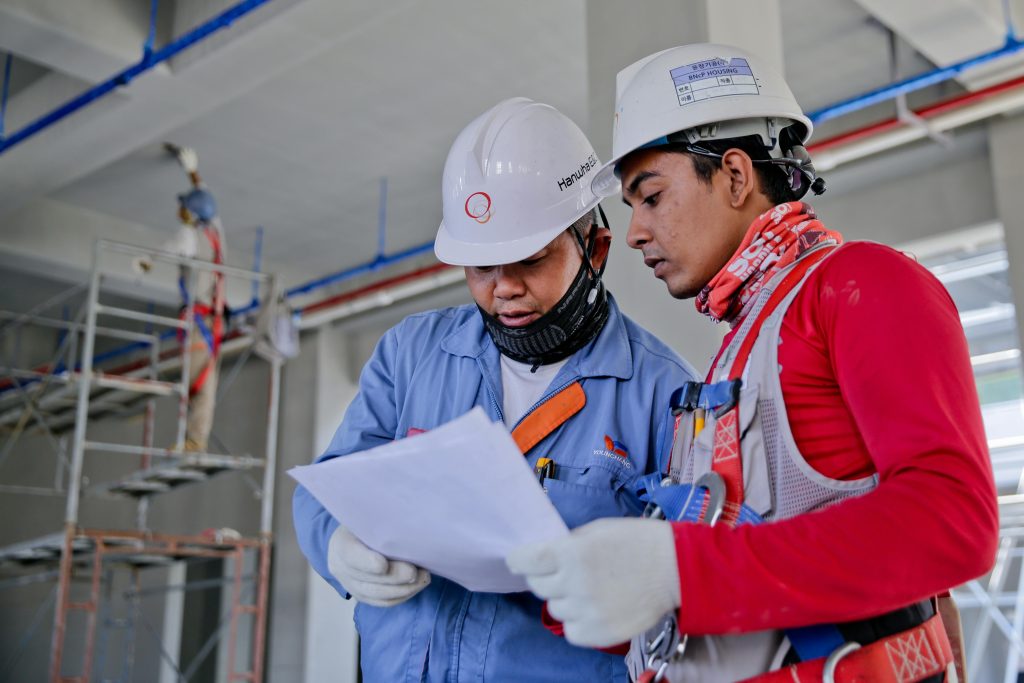Construction workers are the unsung heroes behind every skyline, roadway, and infrastructure project. From towering skyscrapers to residential homes and bridges, their hands-on work brings architectural plans to life. A career in construction offers steady demand, skill development, and the satisfaction of seeing tangible results. For those seeking a hands-on profession that combines physical activity with technical knowledge, becoming a construction worker can be both rewarding and secure.

What Does a Construction Worker Do?
Construction workers perform a wide variety of tasks on building sites, depending on the project type and their level of experience. Their responsibilities may include:
- Site Preparation: Clearing debris, digging foundations, and setting up temporary structures.
- Material Handling: Loading, unloading, and organizing construction materials like lumber, steel, and concrete.
- Structural Work: Assisting in the construction of frameworks, pouring concrete, and assembling scaffolding or building components.
- Equipment Operation: Handling tools and machinery such as jackhammers, drills, cranes, and bulldozers.
- Safety Compliance: Following safety protocols to protect themselves and others on-site, including the use of protective gear.
As they gain experience or undergo specialized training, many construction workers take on more complex tasks such as welding, carpentry, masonry, or electrical work.
Skills and Qualities Needed in Construction
While formal education is not always required to enter the field, successful construction workers share a few key skills and attributes:
- Physical Strength and Endurance: Many tasks involve heavy lifting, climbing, or standing for long periods.
- Attention to Detail: Precise measurements and accurate work are essential for structural integrity.
- Teamwork and Communication: Coordination with other workers, supervisors, and contractors is vital to ensure the project progresses smoothly.
- Problem-Solving Ability: Construction sites often present unexpected challenges that require quick thinking and adaptability.
- Technical Skills: Familiarity with blueprints, building codes, and modern construction tools increases efficiency and safety.
For those looking to advance, specialized training or apprenticeships can lead to roles as skilled tradespeople, site supervisors, or project managers.
Work Environment and Career Outlook
Construction workers typically work outdoors, exposed to varying weather conditions and physical demands. Projects may require early hours, night shifts, or weekend work, depending on deadlines and location.
Despite the physical nature of the job, the construction industry offers strong job security. According to the U.S. Bureau of Labor Statistics, employment of construction laborers is expected to grow steadily, driven by ongoing demand for infrastructure repair, new housing, and commercial development.
Training and Certification Options
While many workers begin with on-the-job training, completing a vocational course or apprenticeship program can significantly boost employability. These programs teach safety regulations, tool use, and basic construction techniques.
In some cases, workers may be required to obtain certifications such as:
- OSHA Safety Certification (Occupational Safety and Health Administration)
- Forklift or Heavy Equipment Operation Permits
- CPR and First Aid Training
Certification helps workers stand out to employers and may qualify them for higher-paying positions or specialized roles.
Opportunities for Growth
Construction is a career path with clear growth potential. Many experienced workers go on to become:
- Foremen or Supervisors: Overseeing teams and ensuring timelines are met.
- Skilled Tradespeople: Specializing in areas like plumbing, electrical systems, or HVAC.
- Construction Managers: Planning and coordinating entire projects from start to finish.
- Self-Employed Contractors: Running independent operations and hiring their own crews.
In addition to job advancement, construction workers often develop life-long skills that are applicable in personal home maintenance or side businesses.
Building a Stable and Fulfilling Career
For those who enjoy physical work, problem-solving, and contributing to meaningful projects, a construction career offers stability and long-term potential. The sense of accomplishment that comes from building something lasting—from the ground up—is unmatched in many professions.
Whether you’re starting fresh or considering a new direction, becoming a construction worker opens the door to a hands-on, rewarding future built on skill, strength, and dedication.
